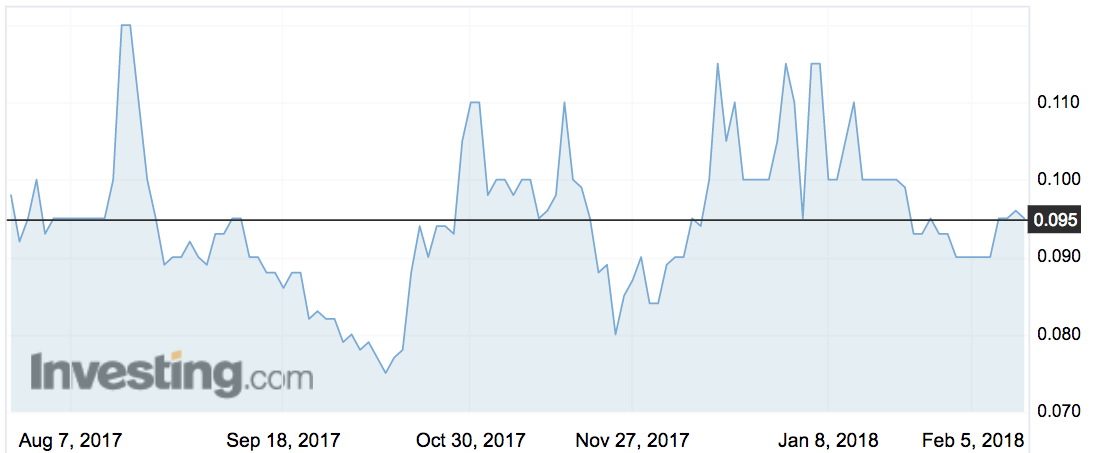Demand for bio-degradeable plastics is ‘going through the roof’ says Secos boss
Food & Agriculture
Food & Agriculture
Orders for bio-plastics are going through the roof after a dramatic shift about 12 months ago, says biodegradeable plastics maker Secos Group.
Secos (ASX:SES) chairman Richard Tegoni says the change has been so dramatic, the group’s Chinese bio-resin factory has gone from running at 10 per cent capacity to 100 per cent.
Secos makes biodegradable resins for bags or bioplastic films for hygienic products like nappies and sanitary pads.
“It feels a bit like the perfect storm,” he told Stockhead. “All of a sudden orders for bio-plastics around the world has gone through the roof.”
“I doubt that if all the competitors around the world, if we got together, could meet the demand.”
Secos reported a 400 per cent jump in resin sales in the December half compared to the corresponding period last year.
Global production of renewable bioplastics has now tipped over 2 million tonnes, Mr Tegoni says.
Meanwhile Leaf Resources (ASX:LER), which is developing renewable sugars that can be turned into almost any kind of plastic, is finding industrial manufacturers increasingly asking for biodegradable versions of chemicals — as long as they offer equivalent price and performance.
Leaf chairman Jay Hetzel says consumers have become a driving force in the shift from petroleum-based materials, pushing companies like McDonald’s into changing their packaging.

Forcing the issue
In Australia, Mr Tegoni’s “perfect storm” is being led by local government and councils forced into action because landfills are expensive and growing scarcer.
Some 20 million tonnes of rubbish goes into about 1160 licensed and unlicensed landfills each year, according to the Department of Environment and Energy. These landfills hold 40 per cent of Australia’s total waste.
Dumping costs are between $42 and $105 a tonne, according to department.
Methane buildups from decomposing organic waste, the kind that forced residents of Cranbourne Estate in Victoria to evacuate in 2008, need to be managed to prevent dangerous explosions and the toxic greenhouse gas from escaping.
This cost is ultimately borne by councils, which are working on diverting waste from landfills.
Councils like Penrith and Albury in NSW have switched to three-bin recycling and composting systems while the City of Casey in Victoria — which had to pay out $17.25 million in compensation over the Cranbourne leak — is focusing on getting food waste out of landfills.
Plastic bag bans are becoming common. Only NSW hasn’t committed to a ban on lightweight single use bags.
A review in ACT, which was the first to take the step, found it reduced landfill by 36 per cent between May and October in 2013.
Recycling isn’t the panacea however.
Stockpiling at an SKM recycling plant in Coolaroo, Victoria, caused a major fire in July last year that took 11 days to bring under control.
On January 1 this year, China stopped taking 24 categories of low-grade solid waste, halting Australian exports of 600,000 tonnes of material and pushing waste management companies like Visy to stop accepting household rubbish from some areas, such as Shepparton in Victoria.
Bioplastic is so now
Mr Tegoni says customers used to approve their products and then string the business along because while they knew bans were coming, they didn’t have to make the change immediately.
They’re not doing this anymore.
Further, customers are now happy to pay the slightly higher price for bioplastic because the associated costs of disposal are becoming higher.
Mr Tegoni says a bioplastic bag is about 1.5 times more expensive than a normal plastic bag, depending on the thickness of the plastic.
He points to their sales of bio-resins to show how fast the market is growing: in the first half of fiscal 2018 they were worth $274,000 in delivered orders. Including undelivered orders (delivery takes about six weeks) that number rose to $800,000.
In the first half of fiscal 2017, resin sales were $155,000.

Mr Tegoni says they’re building another factory in Malaysia where every $1 million spent on resin-making equipment yields $6 million in sales — the payoff period is 8-10 months.
Investors began to really take note of Secos, a product of a merger in 2015, at the end of January when it released those resin sale numbers. While they’re still heavily burning cash, it’s all on building manufacturing capacity.
The company closed on Wednesday down 3.7 per cent to 13c.
Leaf Resources isn’t close to capitalising on the trend — it’s in the planning process to build its renewable sugars and chemicals factory in Malaysia.
Mr Hetzel says they’re looking at a 2019-20 start date.
Investors have bought in an out of the Leaf Resources story, which closed flat on Wednesday at 9.5c.